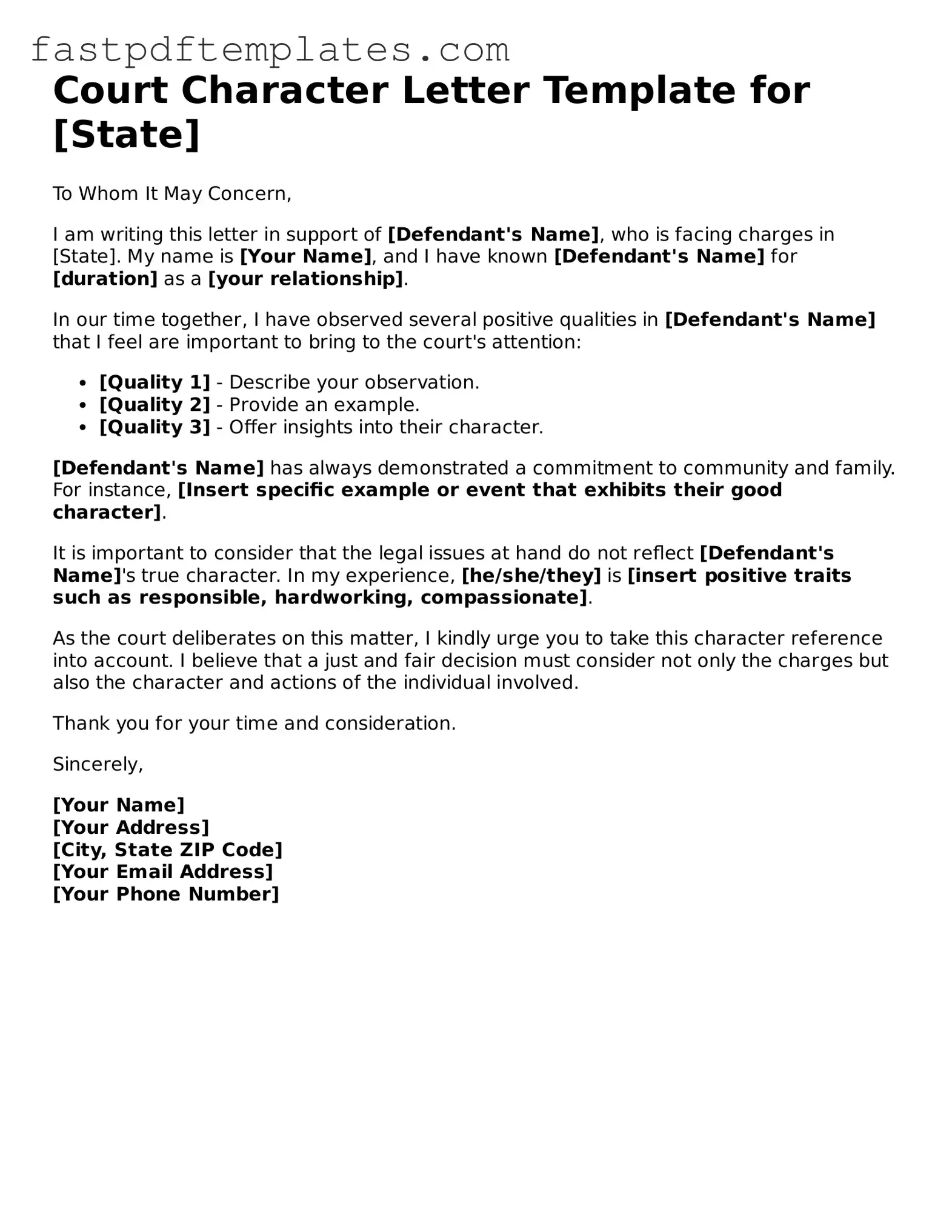The Character Letter for Court is similar to a Personal Reference Letter. Both documents serve to provide insight into a person's character and behavior. They are often written by friends, family, or colleagues who can speak to the individual's qualities. The main goal is to present a positive image of the person in question, whether for a court case or another situation where character assessment is important.
Another document that resembles the Character Letter for Court is the Letter of Recommendation. This letter is typically used in job applications or academic admissions. Like the Character Letter, it highlights the strengths and positive attributes of an individual. However, it is usually more formal and focuses on specific skills or accomplishments relevant to the position or opportunity being pursued.
A Support Letter is also similar. This type of letter is often written to support someone's application for a program, scholarship, or legal matter. It emphasizes the individual's strengths and contributions, aiming to persuade the reader of their worthiness. Both letters share the objective of influencing a decision-maker by showcasing the individual's positive traits.
Next, there is the Affidavit of Character. This legal document is sworn under oath and provides a formal statement about a person's character. While it is more official than a Character Letter for Court, both documents aim to establish credibility and trustworthiness. The key difference lies in the legal weight of an affidavit, which can be used in court as evidence.
The Recommendation for Probation or Parole is another similar document. This letter is written to support an individual's request for probation or parole, emphasizing their good behavior and potential for rehabilitation. Like the Character Letter, it aims to portray the individual in a favorable light to influence a legal decision.
A Letter of Support for a Charity or Cause is also comparable. This letter expresses endorsement for an individual involved in charitable work or advocacy. It focuses on the person's dedication and positive impact, similar to how a Character Letter highlights an individual's good qualities in a court setting.
Moreover, a Letter of Good Standing can be seen as similar. This document often comes from professional organizations or community groups, affirming that an individual is in good standing within that group. Both letters serve to validate a person's character and reliability, although a Letter of Good Standing is typically more formal and organization-specific.
Additionally, a Personal Testimonial shares similarities. This document recounts personal experiences with the individual, often highlighting their positive traits and actions. While it is usually more narrative in style, it serves the same purpose as a Character Letter by providing a personal perspective on the individual's character.
Finally, a Statement of Purpose can be compared to the Character Letter for Court. While primarily used in academic contexts, both documents aim to convey the individual’s motivations and character. A Statement of Purpose explains why a person is pursuing a particular path, showcasing their attributes and intentions in a way that can influence decisions.

